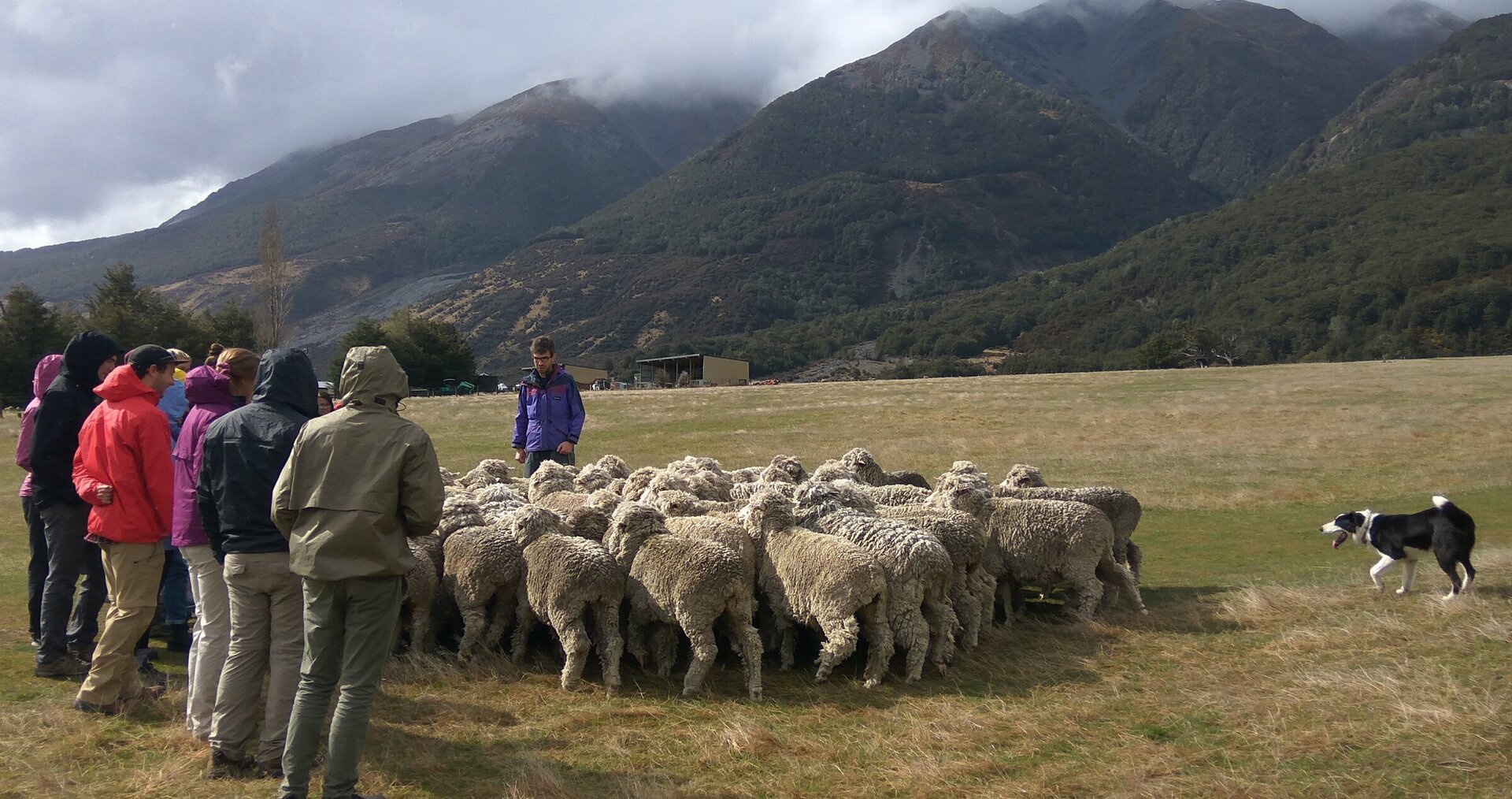Farm Placement
As part of the program, students spend 20 days (commonly two placements of 10 days each) in placements on farms or in agribusiness. Students have the opportunity to engage in hands-on agribusiness/farm activities, longitudinal monitoring of effects of management practices and strategies on soils and crops, as well as explore business models, and local market dynamics. Students translate their academic learning to make significant contributions in real time. Students are at the placements in small groups, which enables teamwork and provides peer support. Staff accompanies students on these placements.
The 22
This 22-acre farm is located on the fertile soils of the Wairau plains in the Marlborough District, on the outskirts of Blenheim. Students work with a family-run enterprise in a peri-urban setting. Current land use is a mix of traditional seed crops (peas, garlic, pumpkins, and grain). Sheep are used for weed control and small-scale year round grazing in the orchard. With intergenerational succession, the family is looking to implement a holistic and regenerative approach to using the land. The guiding principles for the family are to model sustainable, agroecological, and ethical land use, to grow food for, and link with the urban food system, and to promote value-added products. The family is in the early stages of implementing a permaculture plan that incorporates existing infrastructure: an olive grove which has recently been restored, a woodlot, fruit trees and a greenhouse. Fig and nut trees have been planted. The family is keen for the farm to become a learning hub for sustainable food and living, through connected, place-based activities. This farm placement offers opportunities to be part of an exciting urban food system initiative in the early stages of growth. Students are part of scoping the directions of development of the farm, implementing strategies and monitoring long-term outcomes.
Aside from the opportunity to develop practical, transferable skills, there are deeply layered components to the academic purpose of the farm placements (and other hands-on learning) in the SAFSA program.
If our students are to become agroecologists, be they academics, policymakers, or practitioners on the land and in the food chain/food systems, then fundamental to them is the ability to engage at the farmer-to-farmer level through relationships of trust, based in large part on respect for practical experience. They need to be able to work next to someone, to understand at a practical level their economics, and to engage with their kaupapa or purpose.
Related to this is that a deep understanding of any agroecological system requires that the observer be able to become part of it, to live and work in it. Not all (perhaps not many) phenomena can be contrived into existence for the casual (or even scientific) observer. They must be collected as the world is moving, like flakes of gold in the sand, and woven into a tapestry of place.
There is another valuable kind of practical experience that students gain, which is that of cross-cultural communication.
Willy Cameron, lead academic for the EcoQuest SAFSA program
Ellis Creek Farm
Ellis Creek Farm is a family owned farm raising beef and a variety of other produce using a regenerative approach. The farm is located in Golden Bay, not far from the town of Takaka. The family’s aim is to ethically raise healthy and contented animals on spray-free regenerative pasture, improving the capacity of the land to sequester carbon, build organic matter, and protecting and enhancing waterways. This family-run enterprise produces and direct-markets beef, eggs, avocados, and other produce to the local market. The farm is reducing reliance on external inputs and building soil fertility and health through closed loops that utilise on farm residues, and through enhancing soil microbiology. Hands on skills in assessing the state of soils, and techniques of soil improvement are a key aspect of learning at Ellis Creek Farm. An in-depth understanding of the business plan and marketing approach of the farm is also part of the real-life learning, enabling students to develop a nuanced view of local food systems and the transition to regenerative agriculture that is occurring across Aotearoa New Zealand.













